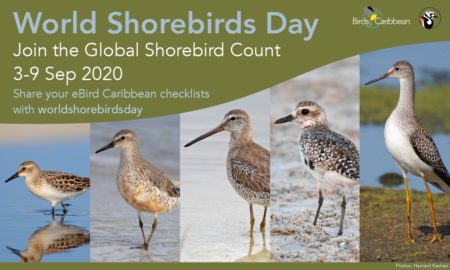 September is right around the corner and migratory birds are making their way south. World Shorebirds Day 2020 is Sunday, September 6th and we need your help to count Caribbean shorebirds at your favorite birding spot (or spots)!
September is right around the corner and migratory birds are making their way south. World Shorebirds Day 2020 is Sunday, September 6th and we need your help to count Caribbean shorebirds at your favorite birding spot (or spots)!
This year’s Global Shorebird Count will take place from September 3 to 9, 2020. All across the Caribbean, birders will be compiling checklists from island to island and recording them on eBird Caribbean. Our migratory shorebirds are more vulnerable than ever, threatened by human activities that have changed or destroyed their habitat. Most species of shorebirds are in decline around the world.
Where are these fascinating birds to be found? While you will find them on shores and beaches, some shorebirds use habitats further inland, including freshwater and brackish marshes and ponds. Shorebirds are also fond of salt ponds, mud flats, mangrove areas, and tidal flats.
eBird Caribbean is a critical tool for tracking and understanding bird migration and population changes – never more so than for our shorebirds. If you do not have an account, it is easy to register – here’s a quick guide to enter eBird data online. There is even a free eBird Essentials course to get you fully oriented. Download the free mobile app for recording your data in the field.
Note that shorebirds are a type of waterbird and any counts you do at wetlands, mangroves, mud flats, coastal areas or beaches count as Caribbean Waterbird Census (CWC) counts. Please choose one of the CWC protocols in the eBird app or when you submit or edit your data online to do your counts. To increase the value of your count to science, be sure to count ALL birds at your site, including seabirds, herons and egrets, land birds, etc.
The Caribbean is a Global Leader of Participation
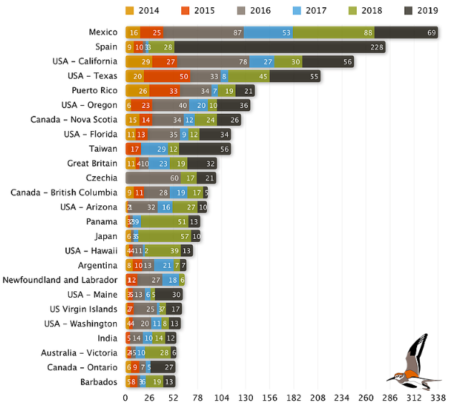
Your checklists matter! We are so excited that of the top 25 countries around the world participating in the Global Shorebird Count from 2014-2019, the Caribbean was listed three times. Puerto Rico, U.S. Virgin Islands, and Barbados – keep up the good work. Let’s see if we can add any other Caribbean islands to the list!
These three locations were certainly not the only areas in the region to participate. Islands from The Bahamas down to Trinidad joined in to count shorebirds with checklists from 19 islands/nations.
Make Your Shorebirds Count—Submit & Share Your Data!
To make your submitted data visible to World Shorebirds Day, please be sure to share your checklist with worldshorebirdsday eBird username of World Shorebirds Day, or add shorebirdsday@gmail.com email address, to your contact list, and share all your related checklists. Only checklists made during the World Shorebirds Day count period between 3–9 September 2019 (inclusive) are eligible. Guidelines for sharing eBird checklists are here.
We hope you will visit as many sites as possible during the 6 days of the count! For more tips on how to do the Global Shorebird Count, go to the World Shorebirds Day website.
Shorebird ID Resources
Need a quick reference for a shorebird you spotted? Or an educational resource for your school or office? Download the pdf of our Quick ID Guide to Common Shorebirds of the Caribbean here. For use in the field, print on cardstock and laminate.
Also, check out our Common Shorebirds of the Caribbean poster, which is available in English, Spanish, and French. Download them from this page.
We also have available a two-page Common Shorebirds of the Caribbean ID Guide – you can download it here. All these ID resources work well in the entire Atlantic Flyway, not just the Caribbean islands.
Count Shorebirds & Stay Healthy
In these extraordinary times, we are still trying to get back to some sort new normal. However, in many countries, it is still not possible to do so. Participants of the World Shorebirds Day and the Global Shorebird Count should check their national guidelines to make sure their activities are in compliance with local health recommendations. Please take all the necessary precautions and stay safe, wherever you are!
What To Do if You See Banded Birds
Be sure to be on the lookout for banded birds! Especially Piping Plovers, Red Knots, Semipalmated Sandpipers, Ruddy Turnstones, and Sanderlings. You may report your sightings to BandedBirds.org and the USGS Bird Banding Lab which oversee all banding in the United States.
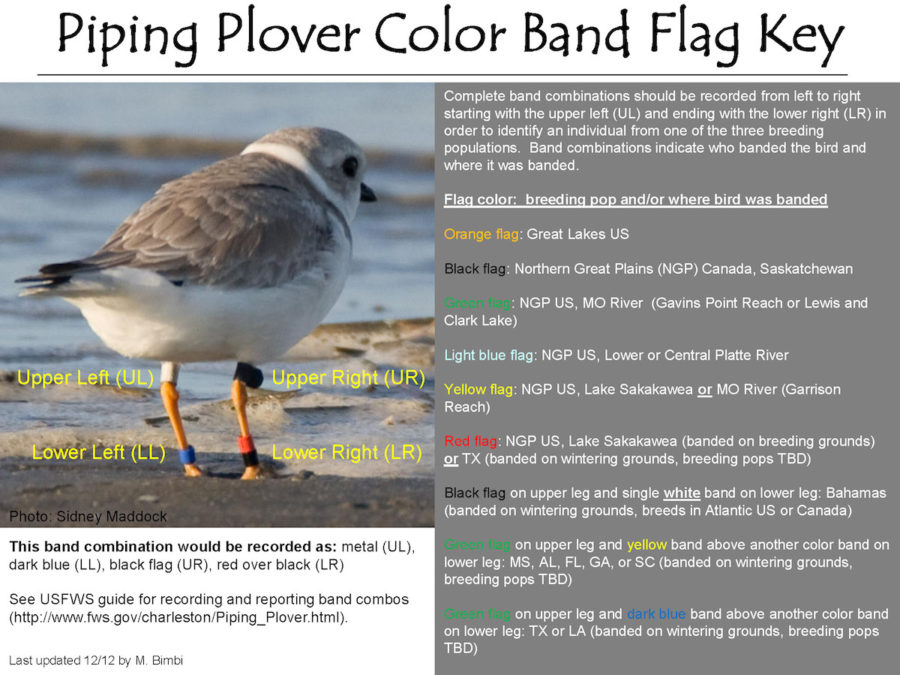
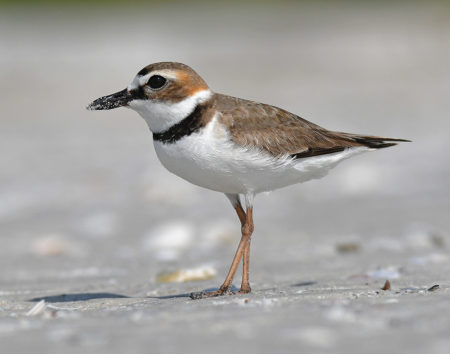

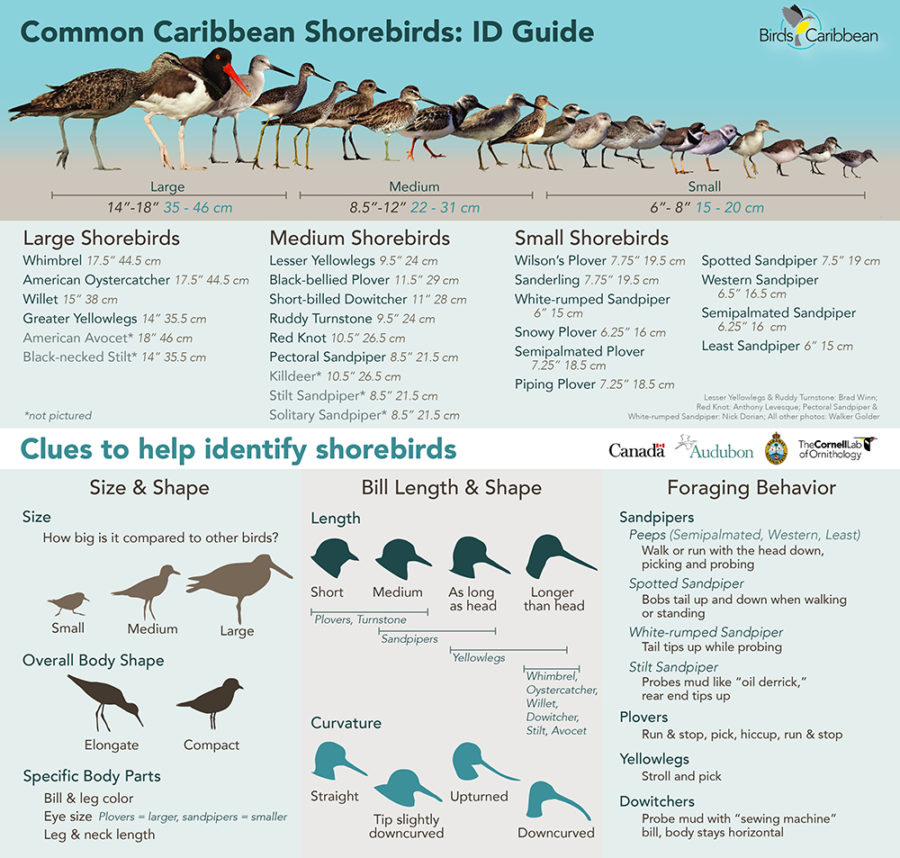

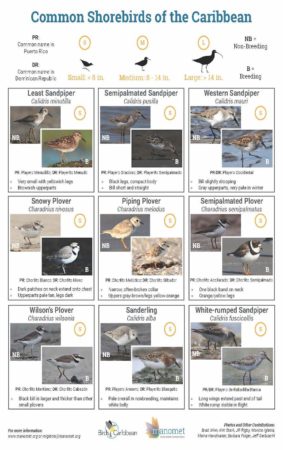
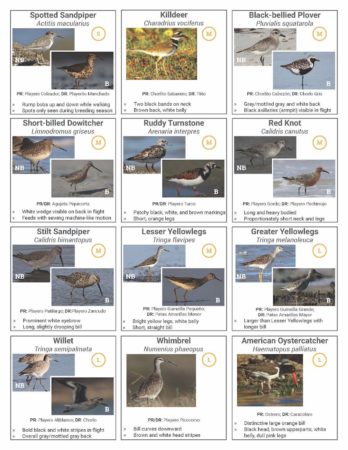
6 comments
Comments are closed.